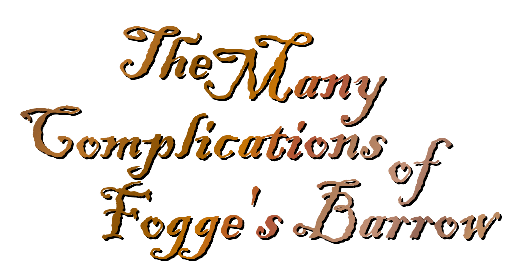I’m running a D&D game right now. Uh, unless something’s gone very wrong, I’ve been running it for some time by the time this guide goes up. But when I make a game I start out by giving people a document, called a Game Brief, that gives them guidance on building characters, and what’s expected of them.
For this game, I knew I had a small party (only three players), because we’d be playing this when our fourth friend was absent from the game. I also knew I didn’t want a huge stake, and wanted it to be much more about something local without big potential impact, so I put it in the mid levels of Heroic. Enough room that players could play experienced characters, but not that they had a veritable tale to them yet.
I’m going to present the brief, as I started on it… and then talk about the complication that followed.

A pair of towns have a territory dispute over the proper rights of ownership of a barrow in between them. Since they both want to flatten the barrow and use the land for something, there’s a reward waiting for people who can investigate underneath it. You’ve got a reason to show up and do the job — and you’re going to find why it’s not a simple question.

The Party’s Place In The World
The setting is Talen’s D&D world Cobrin’Seil. The game is going to start in the nation of Dal Raeda, known formerly as Kyngdom. Dal Raeda is a nation roughly the size of the European Union (give or take a Britain) divided into a number of Provinces (six officially, kind of seven, mostly seen as four ‘and the rest’).
It’s one large, mostly contiguous mass; while there are ‘islands’ around the edges, mostly they are connected by bridges to the mainland or one another. The four major Provinces, in term of size and importance to future military engagements, are Willowsebb, Sanders, Danube, and Glotharen. The other Provinces are Virret Keep (a number of islands distributed throughout the river systems connecting the nation), Brin Proper (the capital city), and Delan (which is a large island the size of Sicily, which is far enough that it can only be reached by boat). Sanders is regarded as the military superpower, Danube as a rising technological power that’s buying tools from other nations, and Willowsebb’s ancient forest and mystical protections make it a wild card.
This campaign is starting in Glotharen. It is the ‘oldest’ Province – the one most proud of being old. History of the nation of Dal Raeda describes a point where Dal Raeda made a pledge to unite with Glotharen. Very ‘see? Dibs’ kind of mindset. Think about the way the City of London sees itself as predating Britain as a nation.
All of Dal Raeda has old ruins from a before time. Glotharen has built cities around many of theirs – there’s a Provincial Ruineers society, a sort of archaeological society. It’s they who designated the hill the story pivots around as Fogge’s Barrow. A barrow, for this context, is a thing where something was covered in dirt and over time, shaped to deform the ground, which differs from a grave or crypt (where something is stuck in a hole in the ground) or a hill (a natural growth of dirt).
The game more specifically starts in one of the two twins of Ovenaght or Rathagn. Ovenaght is a newer town, with a dense number of houses, that has sprung up around an inn and trading spot on the Eresh Highway that runs throughout the city. By comparison, Rathagn is an Incorporated Estate – a former noble’s estate that has been broken up and owned by a number of smaller nobles. Both towns are eyeing Fogge’s barrow, and considering hiring a druid to flatten out the land so they can use it for something. Rathagn wants to expand farmland and redirect a river; Overnaght want to build more homes.
But there are other forces at work, and mysteries that lay beneath.
After you get situated in the location, there will be a Tiefling NPC who can’t enter the towns, and will approach you with an offer and with hints of these strange secrets.

Okay, now here’s the complication.
My players marshalled a Kobold Shaman, a Kenku Rogue, and a Goblin Fighter.
This entire party can walk underneath a coffee table.
What’s more, the three characters are of heritages that aren’t really widespread or common in the location, in the towns. Glotharen is a place where humans make up the bulk of the population, which meant that a Tiefling had to be careful about going into town and doing business. But a Tiefling, as a human-scale humanoid who can conceal details about themselves, could absolutely do better at dealing with the town’s people than the rest of the party, who could stack up into a pile and wear a trenchcoat and pass as a person.
Now this inverts the NPC, and a lot of investigation the players were going to do, are going to be done for them. What brings the players here, then, I wonder?
The players’ suggestion? They’re river pirates, and they want to check out this situation because surely there’s treasure underneath the barrow. And they want to play pirates with a heart of gold – who will come for the money, but change their positions and save the day when it becomes necessary.
See, players are pretty cool when you let them be.